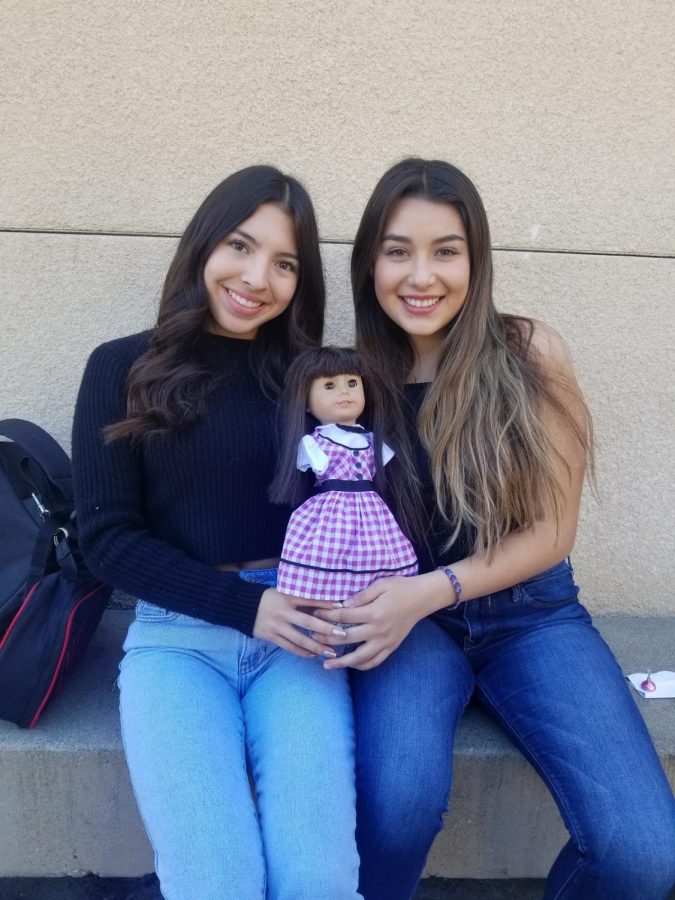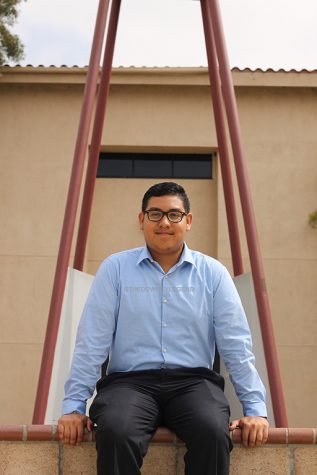Are You Ready Kids…
March 20, 2019
“She first started by saying we are going to make babies,” has been a phrase floating around the halls of Downey High School as AP Psychology students created their “Bottle Baby: A Development Simulation” projects. On March 2, the students had to turn in their bottle babies after “raising” them for two weeks in and out of school.
Ashley Beltran, 12, worked hard creating and taking care of her bottle baby. When she first found out about this project, she was both excited and worried about the instructions.
“Everyone was a little confused and we expected a fake baby to be distributed to us, but she put our creativity to the test by giving us bottles, which were kind of difficult,” Beltran said. “It is a bottle and we can’t cut it, so it’s like ‘What do we do?’… The creativity part was a little difficult, we had to get out of our box.”
Both Mrs. Nastase and Mrs. Hudson, the AP Psychology teachers, introduced this project to their students in mid-to-late February. Although they have taught psychology for a few years, this is the first year where they consider assigning the project to students.
Bryan Maldonado-Sandoval, 12, became a proud father for his bottle baby which he named Lucy. He had fun with the project and valued the uniqueness of it as he has never done something like this before.
“I took this project by heart,” Maldonado-Sandoval said. “Once I was done, I was kind of relieved and a little sad. It fit in with psychology because we got to practice and connect certain thoughts with vocabulary and how it can affect our baby: some things can help it and some can make things worse.”
The project consisted of creating a baby out of a two-liter bottle and showing its growth through the different stages of life. The children needed to transition into the seven different stages of development which are Piaget’s sensorimotor and preoperational, Erikson’s trust and mistrust, initiative vs. guilt, identity vs. diffusion, Kohlberg’s adolescence level and Vygotsky’s zone of proximal development.
Senior Jennifer Martinez explained the main points of her project. She also later elaborated on the significance behind each stage of development.
“I was worried [and] very nervous; I wasn’t sure what I was getting myself into,” Martinez said. “I didn’t know if my kid was going to have all 4 limbs like the rest of the kids on the playground, so that was very nerve-racking: the fact that you had to turn a 2 little plastic bottle into a baby and then make it go through 7 stages of psychological development over 18 years.”
All the students needed to create a bottle baby which would exemplify the different levels of psychological development humans experience. The bottle babies needed to be shown as newborns, toddlers, pre-school, grade school, junior high and high school students. Projects had the liberty to present the children however the students wish to. As they were raising their kids, all the students needed to catalog their findings (with pictures) using either a physical or online “baby book” (a book that acts as a descriptive photo album).
Jeff Lucena, 12, learned a great deal about parenting through the project. Like many teenagers, he did not have a clear comprehension of the struggles a parent could go through.
“I was honestly so stressed,” Lucena said. “I thought I was going to do so bad on it, but it turned out to be really fun. I also had a pretty satisfying end result, so I’m happy. I learned that there are always better ways of doing things when it comes to your child. [Punishing] them when they do something stupid sounds good, but that’s not always the case. Sometimes it’s better to just listen and see why they do those stupid things. We have two ears and one mouth, so we should use them more often.”
After the the babies were all grown up, all the AP Psychology students presented them and their “baby books” to their classes. Students were encouraged to have fun with the project and to explain their struggles raising their baby into adulthood. For being the first year that this project is assigned, a vast majority of the AP Psychology students loved working and parenting a baby of their own.




